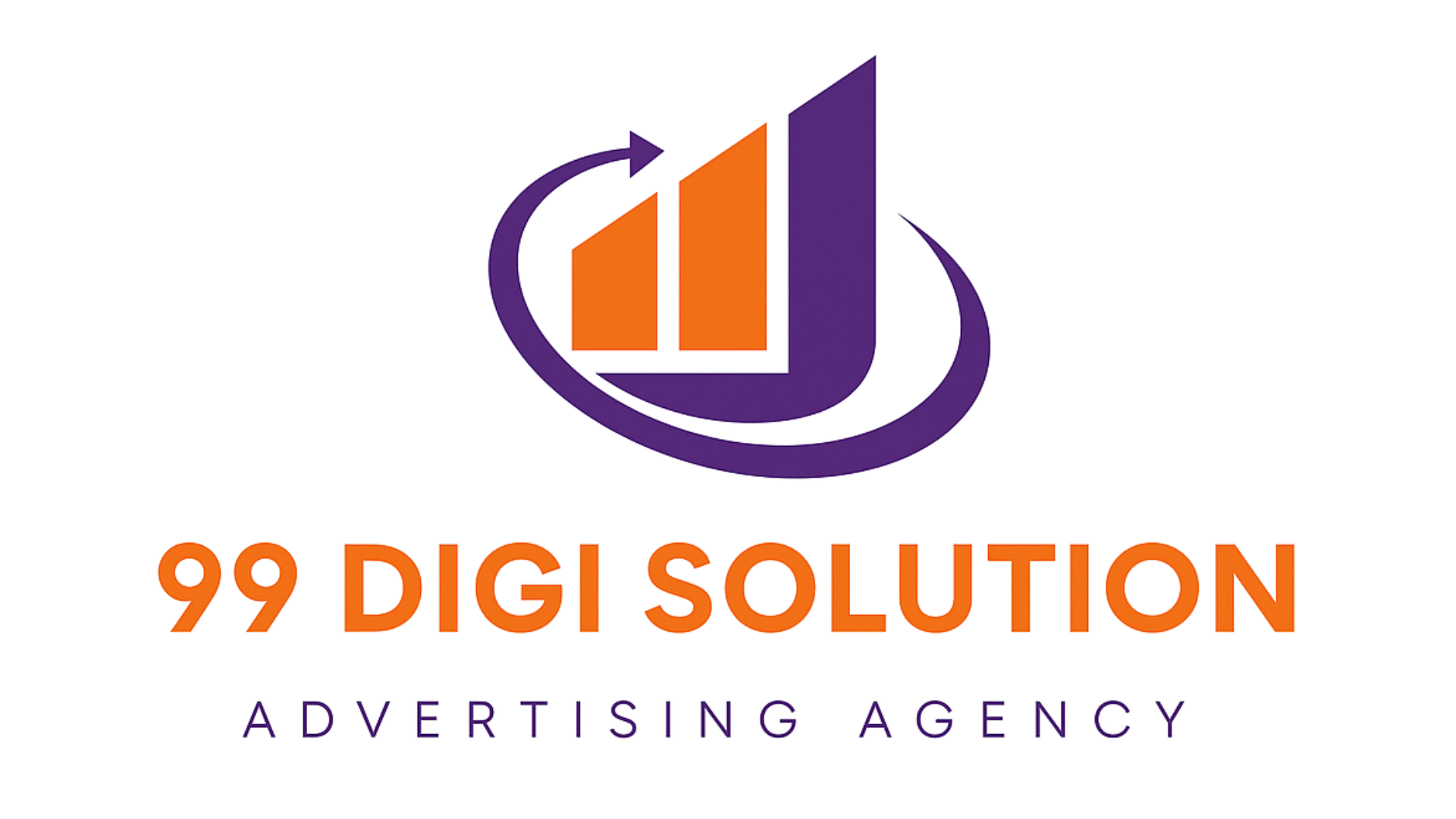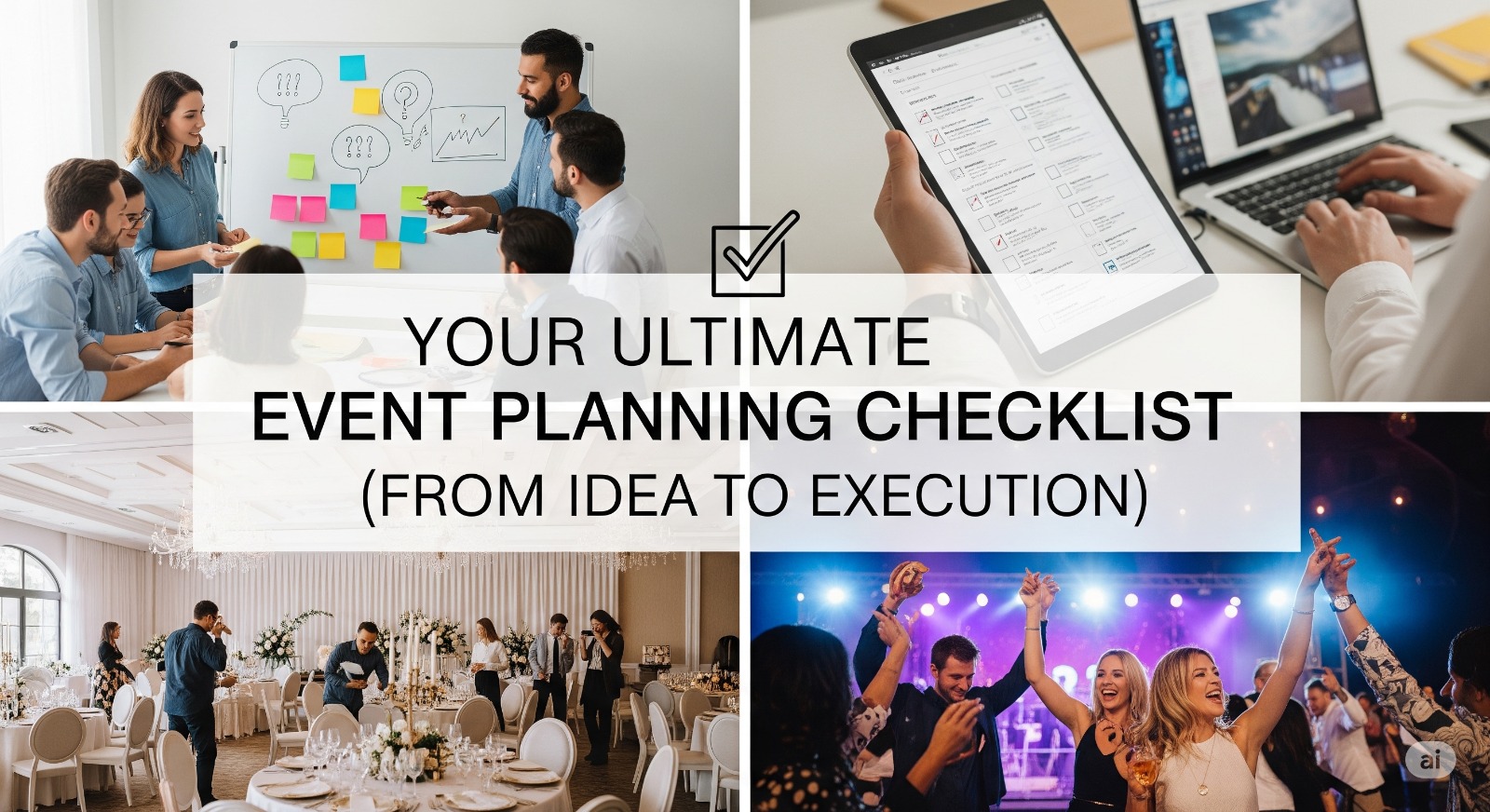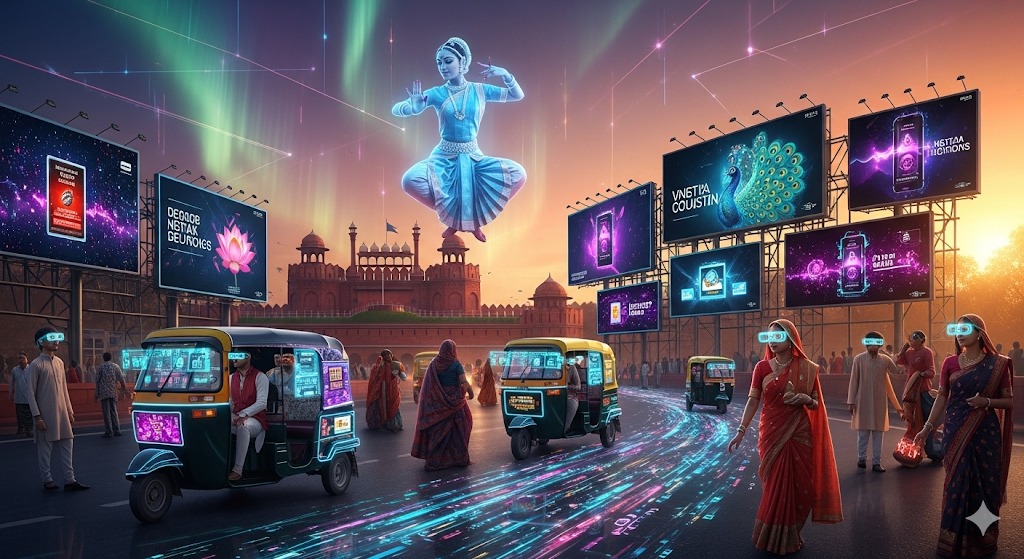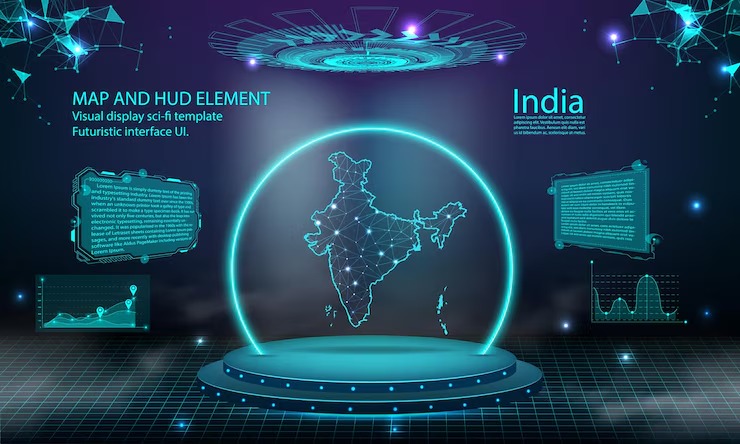Planning an event can feel like a massive puzzle—with a hundred moving pieces that need to come together perfectly. Whether you’re organizing a corporate conference, a wedding, a birthday party, or a hybrid event, having a comprehensive event planning checklist is essential. In 2025, internet searches around “event management services,” “event planning,” and “event coordinator” are soaring as people seek professional guidance and step-by-step processes to ensure flawless execution.
This ultimate checklist will walk you through every crucial stage — from the initial concept to the big day — making it easier to deliver standout events that impress your guests and meet your goals.
1. Define Your Event Objectives and Budget
- Clarify the purpose: Is it a product launch, corporate training, wedding, or a social celebration?
- Identify key success metrics (attendance, engagement, ROI).
- Establish a realistic budget covering venue, catering, technology, and contingencies.
- Research “event management companies near me” to find partners who work within your budget.
2. Assemble Your Event Team
- Hire or assign an event coordinator or planner — local expertise matters as searches for “event planners near me” indicate.
- Delegate roles: logistics, marketing, catering, tech support, volunteer coordination.
- Consider outsourcing to a professional “event management company” for smooth handling.
3. Choose the Date, Venue, and Format
- Select a date that avoids conflicts and maximizes attendance.
- Book the venue early: check accessibility, capacity, technical facilities, and sustainability practices.
- Decide on event format: In-person, virtual, or a hybrid model to widen your reach. Hybrid events are trending strongly in 2025.
4. Develop Your Event Theme & Program
- Create a theme aligned with your brand and audience preferences.
- Plan a detailed agenda including speakers, activities, meals, and breaks.
- Incorporate wellness elements and relaxation zones to enhance attendee well-being.
- Secure keynote speakers or entertainers as needed.
5. Design Attendee Experience & Engagement Plan
- Develop registration and ticketing processes using event management apps to streamline.
- Plan interactive sessions: live polls, Q&A, networking lounges, and gamification.
- Use AI-powered tools to personalize communication and support.
- Prepare printed or digital materials; aim for sustainability by reducing paper where possible.
6. Manage Marketing and Promotion
- Develop a targeted marketing campaign leveraging social media, email, and local channels.
- Use SEO-friendly keywords like “event planning,” “party planner,” or “corporate event planner” in your content.
- Encourage early registrations with incentives.
- Setup event website or landing page for information and updates.
7. Finalize Vendors and Logistics
- Confirm contracts with caterers, decorators, AV suppliers, and transportation services.
- Prioritize eco-friendly vendors for sustainable event management.
- Arrange accommodation and transport for out-of-town guests.
- Plan for technical requirements: Wi-Fi, microphones, streaming tools for hybrid events.
8. Execute Event Day Operations
- Conduct a final run-through with your team and vendors.
- Prepare registration desks and tech support stations.
- Monitor attendee flow and engagement using real-time event management technology.
- Keep a flexible, problem-solving mindset to handle unforeseen issues.
9. Post-Event Follow-Up & Reporting
- Gather feedback via surveys or app-based polling to measure attendee satisfaction.
- Analyze event data to measure ROI and engagement metrics—a growing priority among corporate clients.
- Send thank-you notes to speakers, sponsors, and guests.
- Archive event documentation and lessons learned for future improvement.
Bonus Tips for 2025 Event Planners
- Leverage AI tools to save time and personalize outreach.
- Prioritize green event practices—digital invites, waste reduction, sustainable catering.
- Be ready to pivot between in-person and virtual formats as needed.
- Highlight your local knowledge if promoting services as “event management near me.”
Conclusion
This ultimate event planning checklist is your roadmap to success — combining traditional best practices with modern trends like AI integration, hybrid formats, and sustainable event management. By following a structured approach, you’ll deliver memorable events that resonate with your audience and provide measurable value. Whether you’re a party planner, wedding planner, corporate event manager, or DIY enthusiast, checking off these steps will ensure you stay organized and impress your guests in 2025 and beyond.
















































